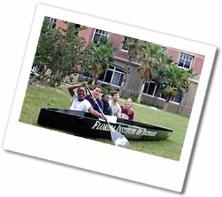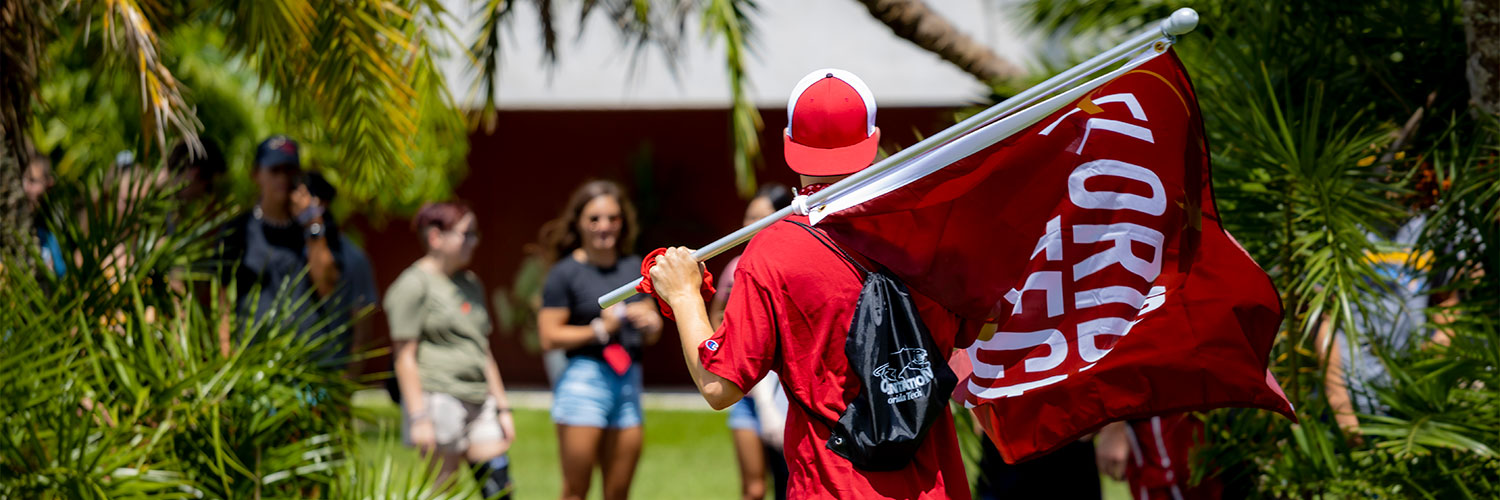Organization Advisors

Student Life thanks all volunteers for your time, energy, and expertise to help our clubs/organizations be successful.
We recognize the great amount of time and attention that you give to your group(s) and hope that you get a lot out of this experience. You are making a difference on campus!
Thank you!
Tools
Tools you'll need to be a successful advisor include:
- Club/Organization constitution/by-laws
- Contact list of officers and members
- Calendar of events for the club/organization
- History of the club/organization
- Club/Organization policies and procedures (found on Florida Tech Engage)
- Attendance at meetings and events on a regular basis
- Willingness to assist the group and its members
Advising
What is Advising?
We all recognize that students benefit from being involved in campus activities. In fact, Alexander Astin (1985) developed a theory of student development based on involvement. This theory showed that significant interaction with faculty and staff, along with campus involvement, increase student learning both in-and out-of-the-classroom. Some of this interaction happens inside the classroom, and some occurs outside of the classroom. One significant way to interact with students is to advise a club/organization. A large part of being an effective advisor is developing your own style that matches with the club/organization's needs. When developing your style, it is important to keep in mind the purpose of the club, the types of activities they are involved in, and the mission/values of Florida Tech. Some groups require more time and attention from their advisor. Other groups require more time and attention at specific times during the year (e.g., a large, annual event). And other groups do not require a great deal of advising. Therefore, it is very important that you negotiate with the group the time/attention they need from you before you agree to be their advisor.
Advising an organization means different things depending on how much time and attention the organization needs. Taking an active role in the organization, attending the majority of meetings/events, meeting with the officers on a regular basis, giving advice, does not mean that you are running the organization. It means that you guide and assist the officers in their roles, not doing the day-to-day operations. You may also take more of a passive role if the organization does not need an active advisor. This means that you attend fewer meetings, or meet less frequently with the officers.
The main objective of an advisor is to be available to guide and assist the officers or members in the mission/goals of the group. How active/passive you will be should be negotiated between you and the group. Student Life has several resources available to you on advising. Our staff can answer questions or assist you in other capacities related to advising a club/organization.
Functions
General Functions of an Advisor:
- Maintenance Functions
- Provide a historical view of the group and the institution. Serve as a resource on administrative/academic issues and how these relate to the functioning of the group.
- Be aware of any and all procedures and regulations affecting the group. Assist them in adhering to them. This includes the constitution and by- laws of the group.
- Encourage the group to keep records and evaluation files. Procedures for passing this information along should be developed.
- Inform members of resources and opportunities that will advance the goals of the group.
- Establish a rapport with the students. Be available to consult with them.
- Mediate inter-group disputes when necessary.
- Growth Functions
- Express sincere enthusiasm and interest in the group and its activities.
- Assist the group in determining how they will function, and what roles the officers will take.
- Act as a positive critic of the group. Give feedback on how they are doing.
- Try to encourage the assignment of tasks to all group members. Help them to understand the principles of the organization.
- Program Functions
- Enlarge the thinking of the group by introducing new ideas and challenging the group on "the way we've always done things".
- Review financial accounts being maintained by the students.
- Attend as many meetings and planned events as possible.
- Miscellaneous
- Allow the group to be on its own. Remember, it is a student club/organization and should be run by and for students. You should intervene if the group wants to do something that is illegal, is not in line with their mission or the mission of the school.
- Provide support for students to practice their management and leadership skills.
- Form a positive, role- modeling relationship with the officers and perhaps even some of the members of the group. You will be looked up to by the students - take this responsibility seriously.
Who do I contact for questions?
Contact Student Life at x6520. You can also e-mail us at studentlife@fit.edu.


 Give to Florida Tech
Give to Florida Tech 